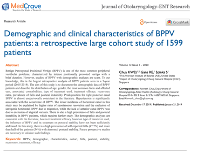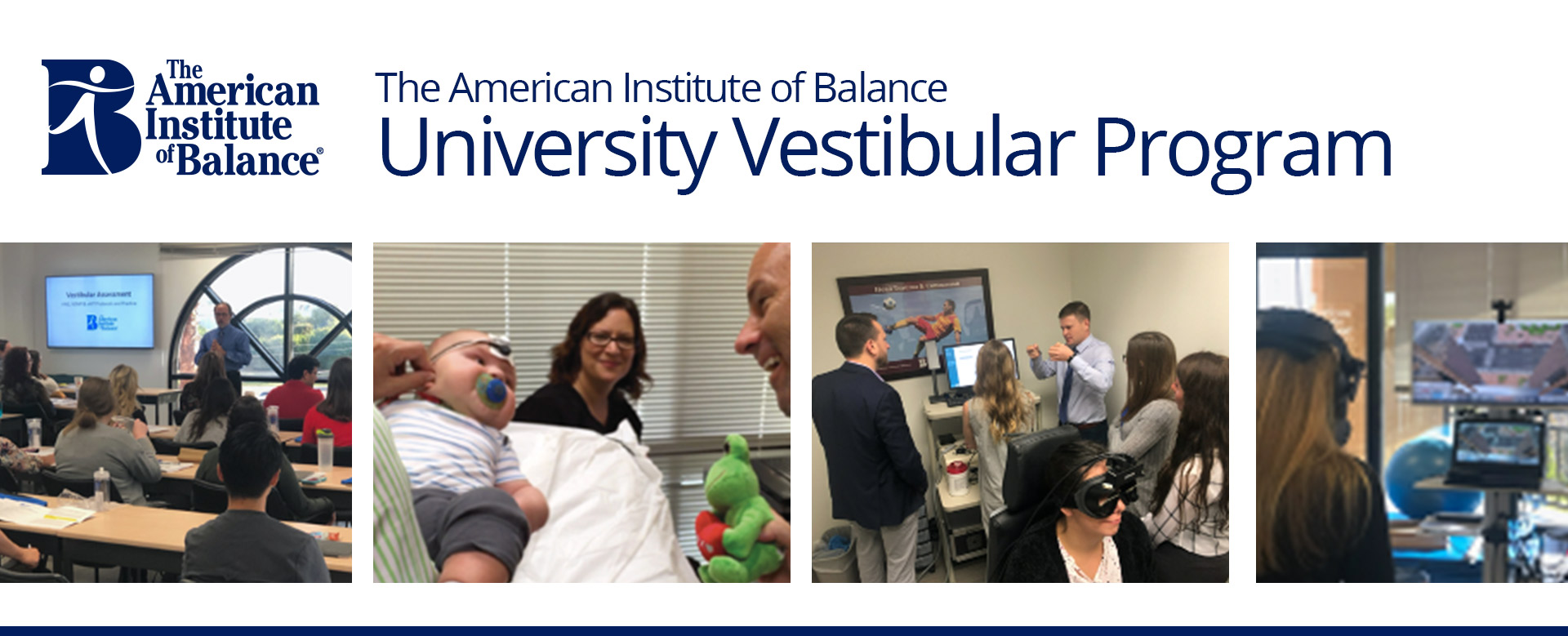AuD University Vestibular Program
Since 1992, The AIB has been recognized as a leading global resource for education, research, and clinical excellence in the evaluation and treatment of equilibrium disorders in children and adults.
The goal of the AIB University Program is to provide Doctor of Audiology programs with a comprehensive, interdisciplinary, evidence-based approach to the diagnostic and rehabilitation aspects of the vestibular and equilibrium sciences. The program may be used in its entirety as a complete semester’s coursework, or in modules to support the educational and clinical experience. The university’s faculty will be able to organize and present the modules in the order they wish as well as utilizing the video-labs and video-case studies and comprehensive AIB online library to support their own syllabus and content.
- All Audiology faculty hold AuD, and/or PhD with CCC-A or ABA
- All Physical Therapy faculty hold earned DPT or DSc. with multiple Board Certifications
- AIB faculty have over 40 refereed journal articles, textbooks, and chapters
- Patient database of 150,000 evaluations and treatments
- 150 international presentations in 25 countries
- AIB offers International Vestibular Medicine Fellowships
- AIB is the world’s largest CEU and CME educators in the vestibular sciences with more than 1,200
- Professional attendees annually.
Richard E. Gans, Ph.D., Founder & Executive Director
Video-Lab Sessions and Patient Video-Case Studies
Video-Lab sessions with demonstrations for Modules 4-7 including Pearls and Pitfalls of evaluation and treatment protocols and techniques to ensure the students receive a comprehensive experience; bedside and technology-based evaluations, diagnosis and treatment of BPPV with Canalith Repositioning, as well as demonstrations of Vestibular Rehabilitation and Balance intervention therapies. Patient video-case studies of infants to adults will be available, for student observation of actual cases for a wide array of a varied assortment of conditions and disorders.
AIB Online Library
Unlimited access to one of the world’s largest libraries of vestibular-balance-equilibrium related textbook chapters, research articles, and publications. The library houses over 3,000 publications with 340+ articles added annually.

Student & Faculty Support
Senior AIB staff and faculty will be available to work with students and university faculty with questions (via email), lab assignments, readings, or general questions and support during the semester. For those faculty with limited vestibular background, AIB will provide a programmed instruction format and additional support as needed.
Cost
The Mission of AIB and the AIB Foundation 501 (3)(c) University program, is to provide the highest quality educational experience for AUD students in the most affordable manner possible. This may be accomplished by an agreed upon pricing per student or class with the university. Grants and partial or full funding may also be available through the AIB Foundation or sponsorships.

MODULES
The curriculum is comprised of 10 Modules. They may be presented in their entirety, in order, in any sequence, or only selected specific modules, whatever best meets the needs of students and faculty.
- MODULE 1 – Anatomy and Physiology
- MODULE 2 – Pharmacology of Dizziness
- MODULE 3 – Disorders: Otologic and non-otologic conditions
- MODULE 4 – Evaluation: Bedside protocols
- MODULE 5 – Evaluation: Technology-based assessment
- VNG
- vHIT
- Rotary Chair
- VEMP
- Posturography
- MODULE 6 – Benign Paroxysmal Positional Vertigo (BPPV): Diagnosis and Treatment
- MODULE 7 – Rehabilitation – Vestibular Rehabilitation Therapy: Role of Physical Therapy and Audiology
- MODULE 8 – Rehabilitation – Balance Retraining and Fall Risk Management
- MODULE 9 – Special Populations: Concussion, Pediatrics, Psychological Considerations
- MODULE 10 – The Business of Balance- Practice Management
